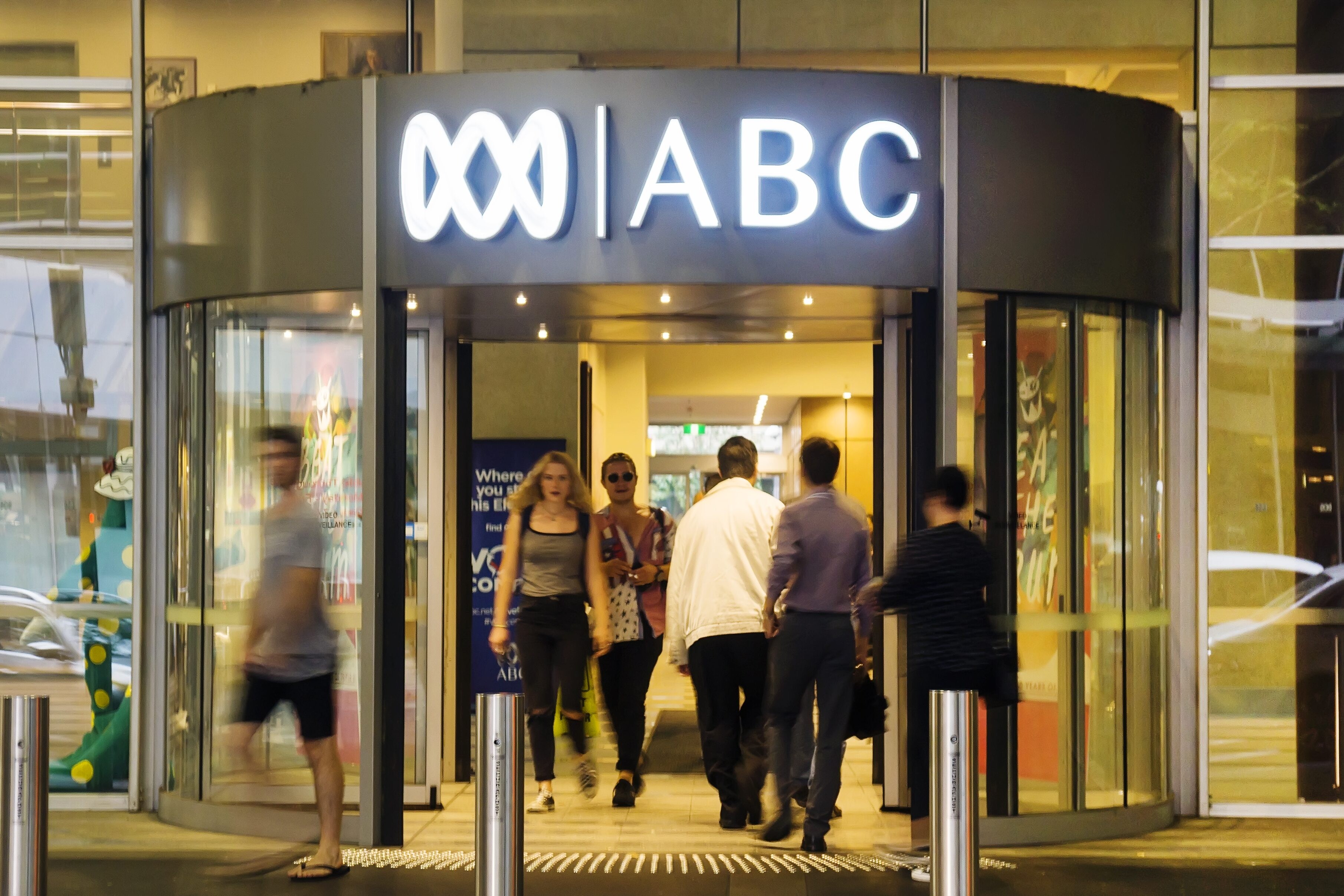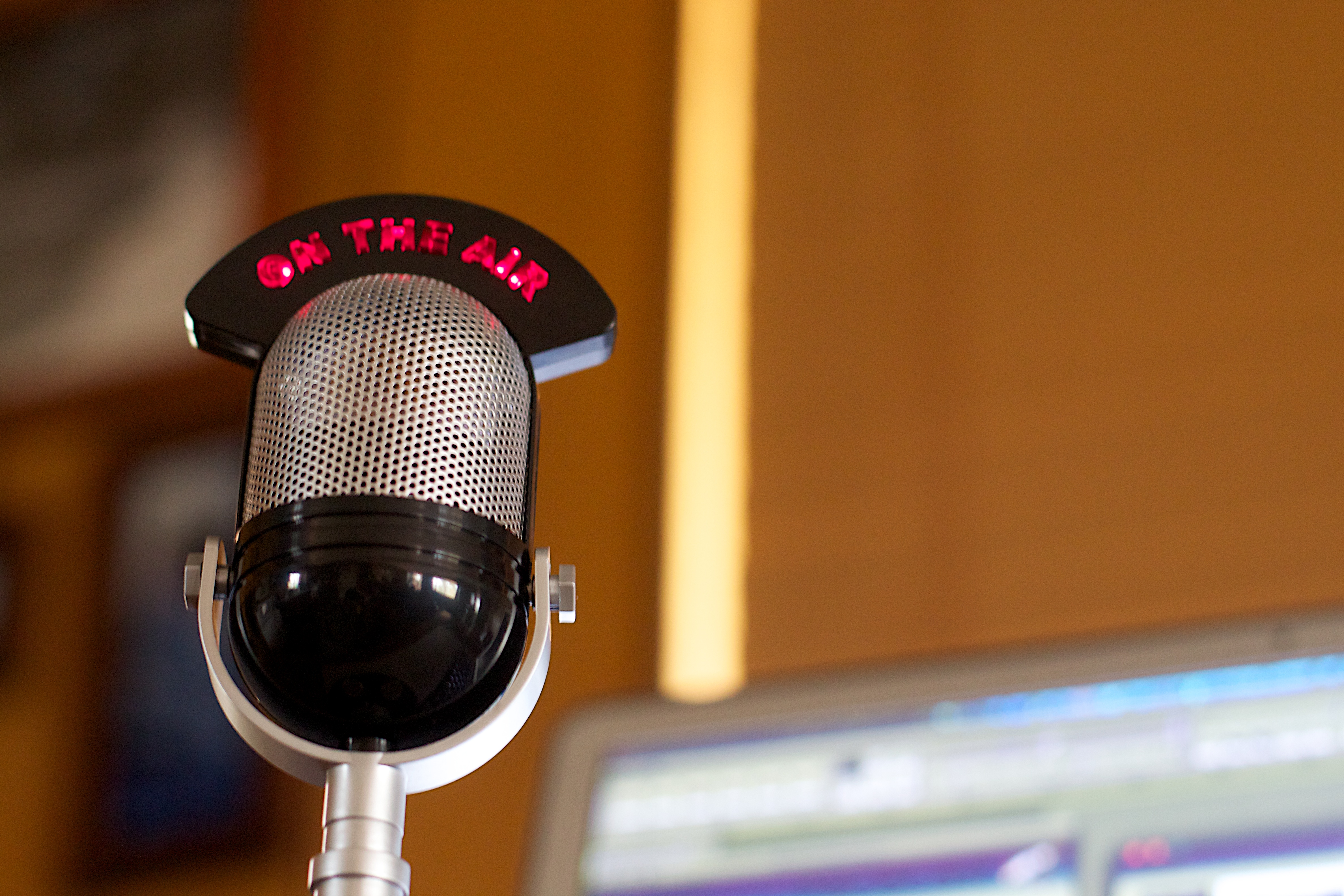Our weekly round-up of public service media related stories and headlines from around the world.
Click on the tab menu below to reveal the latest regional stories.
EGYPT: Egypt tightens control on broadcasts, foreign channels
Al-Monitor: Egypt is continuing its crackdown on the media, warning against the use of mobile communications equipment — such as news vans equipped with satellite dishes — to broadcast outside the studios of the state’s Giza-based media complex, Egyptian Media Production City (EMPC).
ERITREA: Eritrea blocks social media, reportedly to curb planned protests
Africanews: Eritreans are unable to access social media networks as at today (May 15), the BBC’s Tigrinya Service reports.
GHANA: NCA charged to design initiatives that will check Ghana’s diverse Media
News Ghana: The Ghana Journalists Association (GJA) has called on the National Communications Authority (NCA) to pursue initiatives that would guard rather than dim the country’s pluralistic media system.
MALAWI: Despite a low internet penetration, Malawi is worried about fake news in its election run-up
Quartz: As Malawi prepares for national elections to be held on May 21, the country has been hit by a fake news campaign which has quickly spread on social media.
MOROCCO: Law Misused to Silence Reporters
HRW: Woman Who Filmed Police Faces 2 Years in Prison.
NAMIBIA: Media and Technology – the ups and downs in “digitising” Namibia (Opinion)
New ERA: Media undeniably depend on technology, but technology is one segment of media and Namibia is slowly and surely embracing digital media compare to the past 15 years.
RWANDA: Is the Rwandan Govt About to Censor Social Media?
All Africa: The Minister for ICT and Innovation, Paula Ingabire, has said that the government is “working towards devising strategies to regulate social media content to curb the spread of misinformation”, describing the content on social media platforms in general as “misleading”.
SOUTH AFRICA: Bemawu threatens legal action against govt over SABC bailout
SABC: Trade union, Bemawu, plans to take legal action against the President and the Ministers of Finance and Communication for failing to provide the cash-strapped SABC with financial assistance.
SOUTH AFRICA: Minister defends DTT delays
SABC: Communication Minister Stella Ndabeni-Abrahams has defended delays in implementing digital migration (DTT). She says one of the reasons is because a few people have registered to receive the set top boxes.
SUDAN: A successful transition to democracy in Sudan needs press freedom
RSF: The deposed president, Omar Al-Bashir, has been in prison since 16 April but the Military Transitional Council now in charge is maintaining a close control over what the media report.
ZIMBABWE: New Broadcasting Law Seeks to End Alleged ZBC Bias Towards Zanu-PF
Via All Africa: GOVERNMENT’S new broadcasting law is set to free public media from any interference by the State amid continued claims by the opposition the media empire was biased towards Zanu PF.
Uganda: Uganda media in court after Bobi Wine coverage
Aljazeera: Regulator directed 13 media organisations to suspend 39 journalists after coverage of politician taken to prison.
CHINA: China’s Digital Wall Around Tibet
Coda: For decades, Tibetans crossed the Himalayas to seek refuge in Nepal. Now, a digital wall has cut them off from the world.
HONG KONG: New deputy director role proposed for public broadcaster RTHK, but critics fear gov’t influence
HKFP: The Hong Kong government is looking to set up a deputy director position at Hong Kong’s public broadcaster RTHK, which it said will be responsible for administrative work and development.
INDIA: AIR News has special plans for election day
Livemint: AIR News will bring out Special Janadesh 2019, a bilingual programme in Hindi and English – from 7 am on 23 May to 11 pm on 24 May.
INDIA: ‘The battle is still on’: Fake news rages in India’s WhatsApp elections
CBC News: Journalists and activists worry misinformation, falsehoods could alter results in massive vote.
INDIA: Uninterrupted coverage of Lok Sabha results on Doordarshan
The Asian Age: The 2019 Lok Sabha electoral process coverage has been the biggest ever embarked upon by the national broadcaster.
JAPAN: Tokyo court orders owner of car with TV-equipped navigation system to pay NHK fee
The Japan Times: The Tokyo District Court on Wednesday ruled that the owner of a car with a navigation system capable of receiving television signals should pay the monthly subscription fee for public broadcaster NHK.
MYANMAR: Presidential pardon for journalists does little to lift media gloom in Myanmar (Paywall)
The Straits Times: Myanmar media veteran Sonny Swe, who spent eight years behind bars for bypassing censorship regulations before being freed in 2013, describes the recent presidential pardon for Reuters reporters Wa Lone and Kyaw Soe Oo as good news that local journalists have not had “in a long time”. But he is realistic about its larger impact.
NEPAL: With Latest Draft Bill, Press Freedom In Nepal Under Siege
The Wire: Criticism over the harsh provisions of the bill has poured in and many have called for the government to consult media stakeholders and revise it.
SINGAPORE: Singapore passes ‘Orwellian’ law on ‘fake news’
IPI: Measure makes government ministers arbiters of truth in the media.
TAIWAN: Taiwan loses Asia’s press-freedom top spot – but still pretty good
Asia Times: Taiwan offers foreign reporters a fine outpost for China coverage, but local media is polarized, gossipy, under-resourced, and subject to Beijing’s influence.
UZBEKISTAN: Uzbekistan unblocks many independent news sites
RSF: Reporters Without Borders (RSF) hails Uzbekistan’s decision to finally unblock many long-censored news websites and urges the authorities to restore access to those that are still blocked, to lift the obstacles to independent journalism and to allow a broader debate about the repression of recent decades.
GENERAL: Asia’s Elections Are Plagued by Online Disinformation
Freedom House: Parties and candidates across the region have turned to content manipulation as a preferred campaign tactic.
AUSTRALIA: ABC wins the election ratings while Ten slumps to 3.6%
Mumbrella: The public turned first to the ABC for last night’s election coverage, while Ten’s return to current affairs programming delivered an embarrassing low, Saturday’s TV ratings reveal.
AUSTRALIA: Diversity of ABC audio talent celebrated at Australian Podcast Awards
ABC: The ABC has won seven Australian Podcast Awards, more than any other podcast producer, celebrating the depth and diversity of our outstanding audio content.
NEW ZEALAND: Is it time for staff representation on media company boards?
RNZ: A staff-elected board member at the ABC was credited by some with providing a steadying hand during last year’s political interference scandal that saw the sacking of the Australian public broadcaster’s chief executive and the resignation of its board chair. So, would New Zealand’s publicly-owned media companies benefit from having a staff member at the top table?
NEW ZEALAND: RNZ journalists win four categories at 2019 Voyager Media Awards
RNZ: The awards are held annually to “encourage, showcase and acknowledge” the best of New Zealand’s media outlets, editorial employees and their work.
AUSTRIA: Secretly recorded video underscores months-long threat to Austrian media
CJR: On Friday, May 17, two German newspapers, Süddeutsche Zeitung and Der Spiegel, published a secretly recorded video. In it, Austria’s vice chancellor, Heinz-Christian Strache, speaks of his wish to re-design the country’s media environment so that it resembles Hungary, a country where the free press is all but destroyed.
BELARUS: Addressing ‘hate speech’ through media self-regulation: Belarusian practice in European perspective
Article 19: In Belarus, ‘hate speech’ is a pervasive problem that affects various segments of society, in particular LGBT persons, ethnic and racial minorities and women; while the media regularly serves as a platform for the expression of ‘hate speech.
ESTONIA: Attacking the Fourth Estate
Visegrad Insight: Estonian Journalists Are Facing Numerous Challenges From Government Threats to Media Corporatisation.
FRANCE: French media is polarizing. But not in the way we expected
CJR: DURING THE 2016 US PRESIDENTIAL ELECTION, Facebook became a battleground of persuasion and disinformation. Since then, there’s been a vigorous public debate about how—and to what extent—social networks are influencing democracy.
FRANCE: Guarantee Press Freedom
HRW: 17 Organizations Denounce Threats to Prosecute Journalists Investigating French Arms Sales.
FRANCE: Radio France receives 5 awards at the 3rd Grand Prix Strategies for Media Innovation (French)
Radio France:
GERMANY: “We experience the awakening of memory” – delegation from Colombia visits German memorial sites (German)
DW Akademie: How can the conflict with a conflictual past be shaped? On a journey through Germany, Colombian scientists and journalists dealt with historical work-up.
LITHUANIA: Politicians shouldn’t interfere with public broadcaster’s activities, CEO says
The Baltic Times: The Constitutional Court’s ruling on the Seimas’ investigative commission on the Lithuanian Radio and Television (LRT) proves that political institutions should not interfere with the public broadcaster’s activities, LRT Director-General Monika Garbaciauskaite-Budriene said.
NORTH MACEDONIA: North Macedonia Eyes Chance to Reform Discredited Broadcaster
Balkan Insight: As the term ends of the current politically tainted council of the public broadcasting service, a new chance has arisen to reform this propaganda tool of the former regime.
SPAIN: Up to 70,000 signatures claim that Galician public media include content that respects animals
Galicia Press
SWEDEN: Why has the number of climate articles in Swedish media doubled in four years?
The Local: The number of articles about climate change in the Swedish media jumped dramatically last year after a record warm summer, the worst forest fires in living memory, and the school strikes launched by Stockholm teen Greta Thunberg.
UK: A bold new vision for BBC Films (Paywall)
Broadcast: Rose Garnett and her team outline an ambitious new strategy for the broadcaster’s cinema team.
UK: BBC sees rise in female expert contributors
BBC News: In April last year, the BBC launched its 50:50 challenge, aiming for an equal number of male and female expert contributors on-air and online.
UK: BBC response to the National Audit Office’s report: Managing the BBC’s pay-bill
BBC: The BBC welcomes the NAO’s conclusion that the BBC has delivered “significant reforms” and has taken “big steps in improving consistency and fairness” of its pay and terms and conditions.
UK: UK government launches inquiry into reality TV’s duty of care
TBI: Reality TV is facing unprecedented scrutiny in the UK this week following the death of a man who appeared on ITV’s The Jeremy Kyle Show.
REGIONAL: Media self-regulation in South East Europe: guide to best practices for the digital age (Report)
UNESCO
GENERAL: EU auditors raise concerns about Euronews funding
Broadband TV News: The European Court of Auditors has raised concerns about the oversight of millions of euros that the European Commission has spent on the broadcaster Euronews, reports Politico.
GENERAL: ‘Now is the time’: the journalists fighting fake news before the EU elections
The Guardian: With warnings of likely Russian meddling, Europe’s debunkers are picking up the pace.
MEXICO: The public media must be inclusive spaces, in which all voices are included (Spanish)
Arsenal Diario Digital: Journalists and researchers participating in the forum “Towards a Public Broadcasting System of Mexico City” agreed on the great challenges that public media will have, such as: avoiding becoming the spokesperson for the authorities, since must become the most reliable means for capital society.
Knight Center: Another murder of a Mexican journalist occurred on the morning of May 16, this time in Playa del Carmen in the state of Quintana Roo.
VENEZUELA: Caracas full of uncertainty for journalists covering Venezuela crisis
CPJ: A year after disputed national elections in Venezuela, and with access to information growing ever-scarcer, the country remains in a political and economic crisis. Conditions for the press have deteriorated further since January, when Juan Guaidó, the head of the opposition-led national assembly, declared himself interim president.
VENEZUELA: How Venezuela’s vice grip on the internet leaves citizens in the dark during crises
NBC News: Venezuelans still in the country are dealing with the government’s efforts to remain in power and quell uprisings that threaten to remove President Nicolás Maduro.
IRAN: This is how an Iranian network created a “disinformation supply chain” to spread fake news
Nieman Lab
TURKEY: ‘Did I upset you, boss?’: Can Dundar on the collapse of media in Turkey
Deutsche Welle: Living in exile in Germany, journalist Can Dundar has been highly critical of the clampdown on the media under Erdogan. In a DW exclusive, he wrote about the collapse of the independent press in Turkey.
TURKEY: Report details permanent violations of media freedom
IFJ: The DİSK Basın-İş (The Press Workers Union) released an almanac detailing violations of freedom of expression and the press in Turkey during 2018.
TURKEY: Turkey Crackdown Chronicle: Week of May 12, 2019
CPJ
CANADA: In conversation with… Catherine Tait
CBC/Radio-Canada: Tune into the conversation between Catherine Tait, President and CEO, and Debora Barkun as they discuss how mentorship, diversity and inclusion are part of our culture at CBC/Radio-Canada.
CANADA: Shaw says it doesn’t need permission to end free TV service for rural customers
CBC News: Shaw Communications is disputing a CBC News report that said it is asking permission to kill a free TV service for rural and small-city residents, but one expert says the company can’t take any action without regulatory approval.
US: Annual CPB report again finds smaller stations trailing in revenues (Paywall)
Current
US: PBS Digital Studios proposes regional hubs to hep stations create video series (Paywall)
Current: PBS Digital Studios is aiming to build digital-production capacity at local stations by creating several regional training hubs.
US: U.S. journalism really has become more subjective and personal — at least some of it
Nieman Lab: A deep linguistic analysis finds that newspapers today are a lot like newspapers 30 years ago. But TV news — especially cable news — has ramped up the emotion, the conversationality, and the arguing.
2019 Ranking Digital Rights Corporate Accountability Index
Ranking Digital Rights: The 2019 Ranking Digital Rights Corporate Accountability Index evaluated 24 of the world’s most powerful internet, mobile, and telecommunications companies on their disclosed commitments and policies affecting freedom of expression and privacy of internet users across the world.
Audit suggests Google favors a small number of major outlets
CJR: In the last week of April, nearly 23 percent of all traffic to news sites tracked by web analytics firm Parse.ly came from search engines. Google alone accounts for nearly half of external referral traffic—traffic, that is, that comes from platforms, apps, and other outside sources— to news sites.
Christchurch Call and response
RNZ: They came, they talked and they put pressure on social media companies in Paris. The Christchurch Call now has international backing, but a prominent media freedom advocate in the US tells Mediawatch there could be unintended consequences for the media and journalists.
More than words: why journalists need to reassess their unconscious biases
Journalism.co.uk: “Harmful language does not only cause offense. It affects laws that are created, violence, and employment. It goes so deep, it’s about our lives.”
Nieman Lab: “We’ve had a positive response from political parties who now accept that this is how BBC News operates and have been more imaginative in which spokespeople they put up for interview.”
The ‘Christchurch Call’ is just a start. Now we need to push for systemic change (Opinion)
The Conversation: The “Christchurch Call” summit has made specific progress, with tech companies and world leaders signing an agreement to eliminate terrorist and violent extremist content online. The question now is how we collectively follow up on its promise.
Truth and the changing media landscape
RNZ: The media landscape often seems like it’s in a constant state of flux, but the last ten years have really been a complete gamechanger. Interview with Jill Abramson, former executive editor or The New York Times.
Why the Guardian is changing the language it uses about the environment
The Guardian: From now, house style guide recommends terms such as ‘climate crisis’ and ‘global heating’
World broadcasting unions put disaster resilience at top of agenda
EBU: Heads of media and UN agencies met today in Geneva to discuss how public service media and worldwide print and radio media outlets can contribute to reducing disaster risk, saving lives and fulfilling their mandate to further the public good.
PSM Weekly is available via email. You can subscribe by signing up to our mailing list at the bottom of the page or email editor@publicmediaalliance.org.
All PSM Weekly stories are provided for interest and their relevance to public service media issues, they do not necessarily reflect the views of the Public Media Alliance.
All headlines are sourced from their original story.
If you have any suggestions for our weekly round-ups, please email PMA at editor@publicmediaalliance.org.
Header image: The SBS newsroom.



